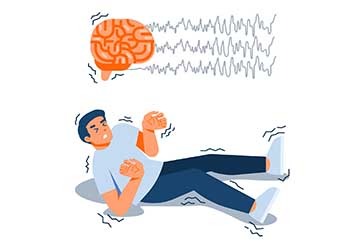 Book Appt.
Book Appt.
 Call Now
Call Now


Alzheimer's Disease is a progressive and debilitating neurological disorder that affects millions of people worldwide. As a form of dementia, Alzheimer's gradually impairs cognitive function, memory, and the ability to carry out everyday activities. It is characterized by the accumulation of abnormal proteins in the brain. Amyloid plaques, composed of beta-amyloid protein, and neurofibrillary tangles, formed by tau protein, disrupt communication between brain cells, leading to their eventual death.
Causes and Risk Factors:
While the exact cause of Alzheimer's remains unknown, a combination of genetic, environmental, and lifestyle factors is believed to contribute to its development. Advanced age is the most significant risk factor, although genetic mutations, family history, and certain lifestyle choices may increase susceptibility.
Symptoms of Alzheimer's Disease
Diagnosing Alzheimer's Disease
Treatment and Care
Conclusion
Alzheimer's Disease is a complex and challenging condition that requires a multidisciplinary approach to diagnosis, treatment, and care. While the journey can be difficult, advancements in research and a growing understanding of the disease offer hope for improved interventions and support for individuals and families affected by Alzheimer's. Through early diagnosis, appropriate medical care, and a comprehensive approach to support, individuals with Alzheimer's can maintain their dignity, well-being, and quality of life for as long as possible.
SHALBY Sanar International Hospitals provides extensive medical procedures backed up with our state-of-the-art technology and a team of highly qualified & experienced clinical experts.

Patient from Iraq gets treated by Dr. Harnarayan Singh | SHALBY Sanar International Hospitals

15 year old Patient from Liberia gets treated by Dr Harnarayan Singh | Neurosurgery & Spine Surgery

Mrs. Khalida Khaleel from Iraq Overcomes Degenerative Disc & Grade 1 Spondylolisthesis

Successful Treatment of a Patient from Uzbekistan for Degenerative Disc Disease and Back Syndrome

Surviving Stroke: Bipasha Banerjee's Testimony on Timely Intervention

Successful Intraoperation Neuro Monitoring on patient Hasan from Iraq

Successful removal of Glioma using advanced machines

A multidisciplinary care worked wonders for Ms. Akhtamova from Tajikistan

Treatment for Brain Aneurysm - Al Qumairi Saeed Mohsen Awadh from Yemen
Our doctors pen down their research findings and experiences from time to time. Their words provide deep insight into the latest techniques, technologies and other advancements in healthcare. It provides expert answers to all kinds of health questions for real-life issues.
VIEW ALL




Since the day of its foundation, SHALBY Sanar International Hospitals is committed to provide comprehensive healthcare services. It regularly organizes awareness programs in its premises and encourages outdoor healthcare activities and camps with an intent to put focus on preventive healthcare.
VIEW ALL